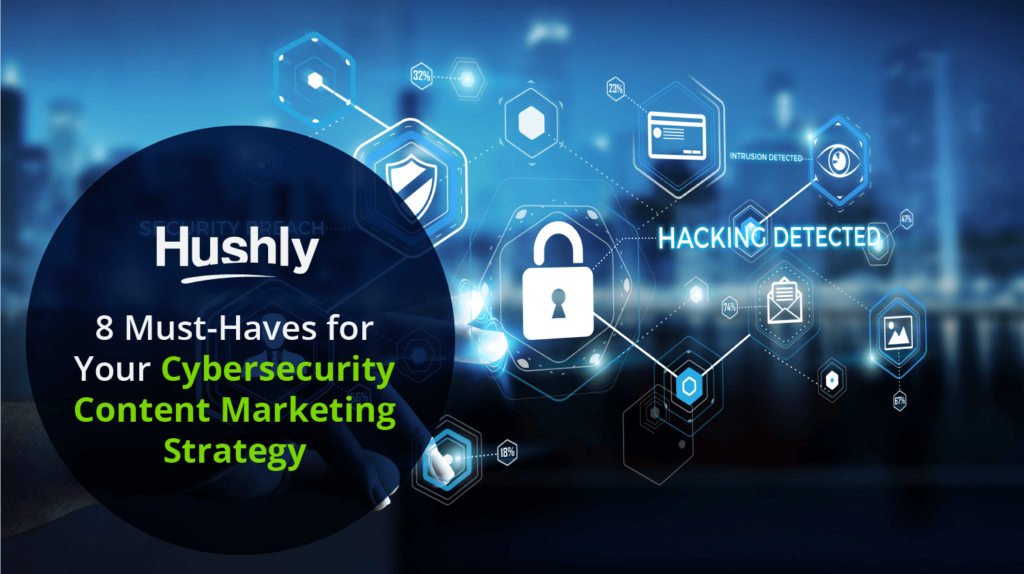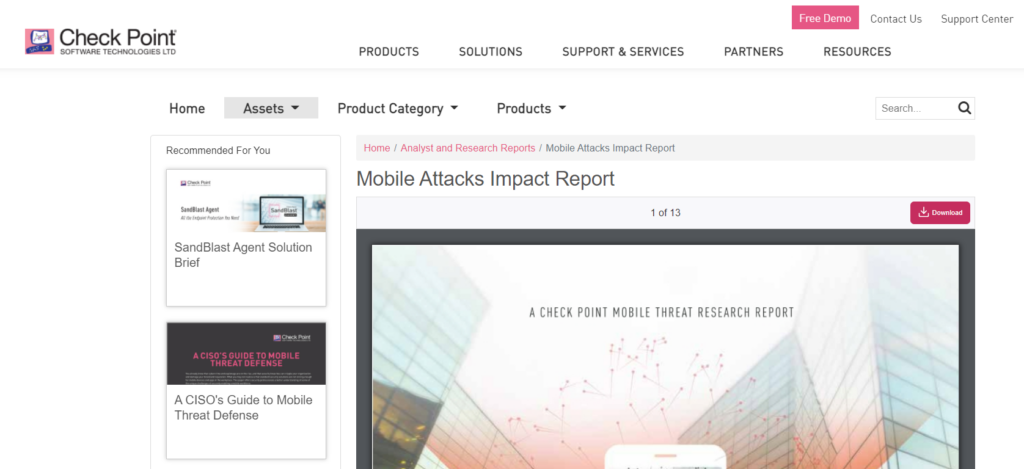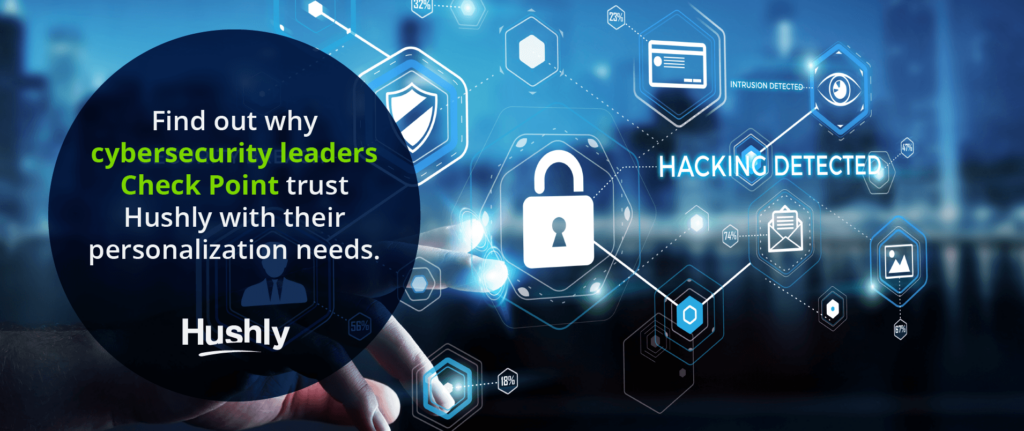As an industry, cybersecurity demands exponential trust to win leads and accounts.
Picking the wrong cybersecurity vendor doesn’t just set businesses back some money. Shady cybersecurity can put a business’s data and wellbeing at risk.
Your content is your best chance to prove your authority and form connections with your leads.
Even though 60% of businesses lack a cybersecurity strategy and hacks happen daily, most businesses just don’t consider cybersecurity a priority.
It’s your job as a marketer to prioritize demand generation through effective cybersecurity content marketing. Here’s how.

8 Essential Elements of Every Successful Cybersecurity Content Marketing Strategy
Your cybersecurity content marketing must accomplish a few goals:
- Establish your brand as an authority or thought leader in the cybersecurity space.
- Make your audience aware of the risk they face by neglecting cybersecurity.
- Educate your audience about the latest news in the cybersecurity industry.
- Explain why your company is the best choice for cybersecurity tools/services.
- Resonate with specific audience segments on a deep level.
Use the strategies below to create cybersecurity marketing material that connects with your readers to establish demand and build brand recognition.
1. Authority and Expertise
No one wants to entrust their business’s security with a brand they don’t recognize. It’s no surprise that Cisco accounts for 55% of the cybersecurity market share.
But Cisco is losing ground. Just a few years ago, the tech giant held 68% of the market. Today, smaller companies like Hushly client Check Point are closing in.
Your cybersecurity marketing material must clearly explain who you are, what you do, and why anyone should trust you. Your content should show that you’re at the forefront of data protection and cybersecurity research as well.
Don’t rattle off the same stats and tips you find everywhere. Make the reader’s time worthwhile.
2. Urgency Without Fear
According to Cyber Readiness Institute’s 2020 report, only half of the companies surveyed provided staff with adequate cybersecurity tools for remote work. Meanwhile, 64% of those targeted by attackers are small businesses. Cyberattacks cost businesses over $200,000 million on average, obviously putting many out of business.
With so many in need of cybersecurity, you’d think you have an open-and-shut case. Not so.
No one, especially small businesses and government agencies, thinks cyberattacks will happen to them – until they’re attacked.
Your job as a marketer is to boost urgency throughout your cybersecurity content marketing without fearmongering. Nobody wants to feel bullied into buying security.
Instead, focus on highlighting the objective reality – and randomness – of devastating attacks and offering genuine solutions.
3. Well-Researched Personas
You can’t create effective content if you don’t know who your audience is. With so many companies in need of cybersecurity, it’s smart to narrow down your target audience.
Start by considering the industries you’ve already established experience. Next, consider some specific verticals. Finally, think about an account-based marketing strategy to target individual companies or organizations.
You’ll have much more luck resonating with specific audiences because you can laser focus on their unique problems.
4. Personalized Recommendations
A personalized content experience helps your audience find the most relevant piece of content on your website no matter their industry, vertical, or account.
Artificial intelligence engines function similar to Netflix or Spotify. Once a visitor starts browsing your content, the algorithm kicks in and studies their behavior. By comparing their behavior to thousands of previous visitors, the AI engine offers content recommendations to gently guide leads down the funnel.
Check Point uses the Hushly AI engine for their content resource center:

5. Relevant Case Studies
Buyers consume an average of 13 pieces of content during the sales journey. 60% say they want to see case study material like product success stories.
Choose case studies that reflect your target audience. For example, you might pick other companies in their vertical or even their competitors for your case studies.
This will show that you have experience handling their unique cybersecurity needs, establish demand, and help them compare your services to others.
6. Personalized Landing Pages
Each organization’s cybersecurity needs vary widely. A small SaaS business has vastly different needs than a state government agency.
Dynamic landing pages let you tailor your content and offers for each visitor’s unique situation.
Fortunately, AI technology today makes it easy to design customizable landing pages for either individual accounts or vertical clusters.
Create landing pages with unique branding and logos, industry news, relevant content and research, and custom pricing. Don’t even wait for leads to contact you about personalized pricing. Use dynamic landing pages to let them know right away so visitors can share the details with stakeholders.
7. Current Events Stories
No B2B industry is in the news quite as often as cybersecurity. You have a unique opportunity for fresh content ideas daily.
Set up a curated RSS feed on hacks, ransomware attacks, and other cybersecurity news to check internally each day. Try to write about the most relevant stories as they happen and keep your audience updated.
Not only will these stories help establish demand, but they’ll also show that you’re on top of the latest cybersecurity news.
8. Peer Reviews and Testimonials
After case studies, peer reviews and testimonials are vital for establishing authority and trust. 91% of people read reviews before making a purchase and you can bet B2B cybersecurity buyers are no different.
Reviews and testimonials work because they’re coming from objective third parties – not your marketing department.
Ask your best clients to leave reviews on top sites like Trustpilot, Google, and Facebook so their testimonials appear as your leads run general searches about your company.
You might consider enlisting the help of your best clients as influencers in their market segment as well.
Personalize Your Cybersecurity Content Marketing with AI
You need a personalized web experience to help visitors find the most relevant pieces of content every time. Instead of digging through your blog for relevant content, visitors receive a completely unique experience based on their behavior.
AI can help you optimize every point of contact across your website – from dynamic landing pages and exit intent to content hubs and lead forms.
Find out why cybersecurity leaders Check Point trust Hushly with their personalization needs.



